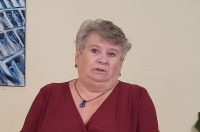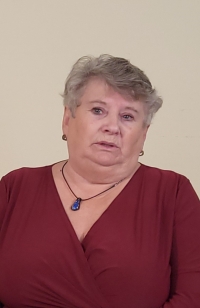We could see Germany from the window, but we could never go there

Stáhnout obrázek
Dagmar Strnadová was born on 30 November 1956 in Mariánské Lázně. She came from a Czech family, but her ancestors left for Prussia in the seventeenth century, from where her parents returned after the World War II. Dagmar Strnadová spent her entire life in the village of Tři Sekery, which was located only a few kilometres from the border with West Germany. Although she had wished to be a teacher since childhood, in the end her dream did not come true. The communist regime only allowed her to study at an apprenticeship school. So she trained as a letterpress artist, which she did for a living until the Velvet Revolution. In 1986, she spent a month in the United States, where her relatives lived. She became involved in the Velvet Revolution in Tři Sekery and founded the local Civic Forum (OF). In April 1990, she then became mayor of the village. She served in her position for thirty-three years. In 2014, she won the competition for the best mayor of the Karlovy Vary Region. In 2023, she was still living in Tři Sekery and served as the deputy mayor of the municipality.

